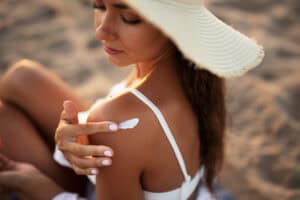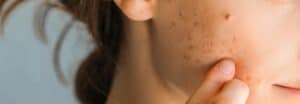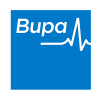Deciphering Acne
What is Acne?
Acne doesn’t exclusively afflict teenagers; it can touch individuals of all age groups. It transpires when hair follicles are blocked with oil and dead skin cells, inciting inflammation and yielding pimples, blackheads and cysts. Recognising the various types of acne and dispelling common misconceptions is vital for adequate management.
Varieties of Acne
- Comedonal Acne: Identified by blackheads and whiteheads.
- Inflammatory Acne: Comprises papules and pustules that are red and inflated.
- Cystic Acne: Severe type involving painful, pus-filled cysts under the skin’s surface.
- Nodular Acne: Hard lumps beneath the skin, often more severe and painful.
Conventional Misconceptions
- Acne is caused by inadequate hygiene: Even though cleanliness is important, acne is often influenced by genetic and hormonal aspects.
- Only teenagers get acne: Adult acne is prevalent, especially among women, due to hormonal changes.
- Diet doesn’t affect acne: Specific foods can intensify acne in certain individuals.
Causes of Acne
Genetic Elements
Hormonal Fluctuations
Lifestyle Choices
- Food Habits: Foods with a high glycaemic index, dairy and certain dietary habits can induce acne outbreaks.
- Stress: Stress incites the release of hormones that can exacerbate acne.
- Skincare Regime: Over-cleaning, applying harsh products or improper cleansing can intensify acne.
Treating Acne
How Can Acne Be Treated?
Successful acne treatment necessitates a holistic approach that starts with understanding the severity of the condition and choosing the apt treatments accordingly. Various treatment alternatives tackle different types and stages of acne, ranging from general retail solutions to advanced medical interventions.
General Remedies
- Topical Retinoids: they aid in unclogging pores and reducing inflammation. Topical retinoids, compounds derived from vitamin A, are commonly used in acne treatment due to their effectiveness in handling several key contributors to the condition.
- Benzoyl Peroxide: A potent treatment that eradicates acne-causing bacteria and curbs oil production. It permeates pores to discharge oxygen, annihilating Propionibacterium acnes bacteria and thwarting new outbreaks.
- Salicylic Acid: Exfoliates the skin and keeps pores clean. Its oil-soluble nature enables it to delve deep into the pores, effectively disposing of excess sebum and dead skin cells that can block pores and trigger breakouts.
Prescribed Remedies
For severe or enduring acne, dermatologists may prescribe stronger treatments that are not available over the counter. These prescribed therapies include:
- Oral Antibiotics: Mitigate inflammation and bacterial growth. By reducing these bacteria, oral antibiotics assist in alleviating the inflammation and infection associated with acne lesions. Moreover, these medications possess anti-inflammatory properties that further help in decreasing the redness and swelling of inflamed acne.
- Hormone Suppression: For females, contraceptive pills can balance hormonal fluctuations. These pills regulate the levels of hormones such as estrogen and progesterone, which in turn can diminish the production of androgens (male hormones) that stimulate the sebaceous glands to produce an excess of oil.
- Topical Antibiotics: Eliminate bacteria on the skin’s surface. These antibiotics target the bacteria responsible for causing inflammation and infection in acne lesions. By reducing the bacterial population, topical antibiotics help to decrease the severity of acne and prevent new breakouts from happening.
Progressive Acne Treatments
In cases of serious or persistent acne, progressive treatments may be required. Our range of acne treatments includes:
- Chemical Peels: Exfoliate the skin and reduce scarring. These procedures involve applying a chemical solution to the skin to exfoliate the outer layers, promoting cell turnover and reducing the appearance of acne scars. Chemical peels can improve skin texture and tone while unclogging pores and reducing inflammation.
- Bespoke Prescriptive Facials: Customised to address specific acne concerns, these tailored facials integrate various therapeutic techniques and ingredients to cleanse, exfoliate and treat acne-prone skin. They may include extractions, masks and serums designed to target acne and encourage healing.
- Phototherapy: This procedure utilises specific wavelengths of light to reduce inflammation and kill acne-causing bacteria. Blue light therapy, for example, targets Propionibacterium acnes bacteria, while red light therapy aids in reducing inflammation and promoting skin healing.
- Laser Treatment: Laser therapy targets the deeper layers of the skin to alleviate acne and scarring. It functions by delivering controlled laser energy to the afflicted areas, which helps to shrink sebaceous glands, decrease oil production and stimulate collagen production for improved skin texture.
- Fractional Laser Resurfacing: This progressive laser treatment generates microscopic wounds in the skin, promoting the natural healing process and collagen production. It aids in enhancing skin texture, reducing the visibility of scars and treating deep-seated acne.
- N-Lite Laser: This non-intrusive laser treatment boosts collagen production and reduces acne bacteria. It enhances the skin’s overall appearance by reducing active acne and promoting skin regeneration.
Formulating a Skincare Routine
Formulating an effective skincare routine is vital in controlling and preventing acne. Here are steps to create a routine that suits your skin’s needs:
- Cleanse: Use a mild cleanser to clear dirt, oil and makeup without stripping the skin.
- Treat: Apply targeted treatments such as retinoids or benzoyl peroxide.
- Moisturise: Use a non-comedogenic moisturiser to keep the skin hydrated.
- Protect: Apply sunscreen daily to guard against UV damage.
Lifestyle Suggestions for Controlling Acne
Lifestyle decisions can substantially impact the management of acne:
- Diet: Incorporate a balanced eating plan rich in fruits, vegetables and omega-3 fatty acids. Avoid foods with a high glycaemic index and excessive dairy consumption.
- Stress Management: Adopt stress-reducing techniques like yoga, meditation and adequate rest.
- Hygiene Practices: Refrain from touching your face, regularly change pillowcases and cleanse after perspiring.
The Value of Expert Guidance
While general retail treatments and lifestyle modifications can assist in managing acne, seeking expert advice from a dermatologist is priceless. Dermatologists can provide personalised treatment plans, recommend suitable products and offer advanced treatments unavailable over the counter.
Advantages of Expert Treatment
- Accurate Diagnosis: A dermatologist can accurately identify the type and severity of acne.
- Customised Treatments: Receive therapies specifically crafted for your skin type and condition.
- Continuous Support: Regular consultations ensure your treatment course remains effective.
Acne Awareness Month is a chance to educate, aid, and empower those affected by acne. By understanding the causes, exploring successful treatments and adopting a comprehensive approach to skincare and lifestyle, individuals can control and diminish the effect of acne on their lives. Remember, seeking expert advice is crucial for long-term triumph in treating acne.
Take the first stride towards clear skin today. Schedule a consultation with our expert dermatologists to devise a personalised treatment plan tailored to your needs. Share this post with others to disseminate awareness and support Acne Awareness Month.






